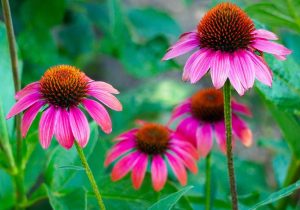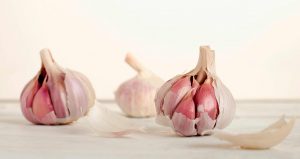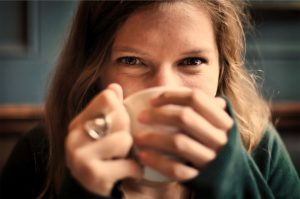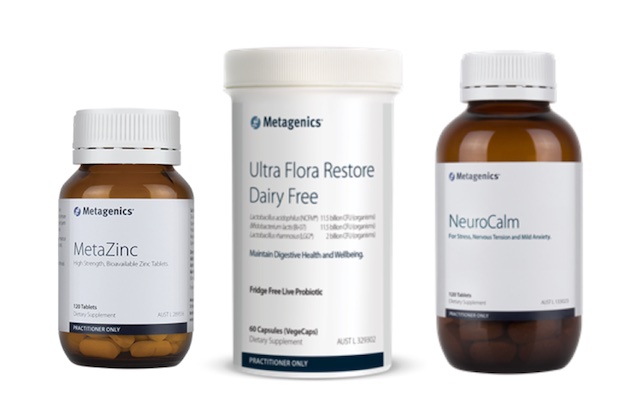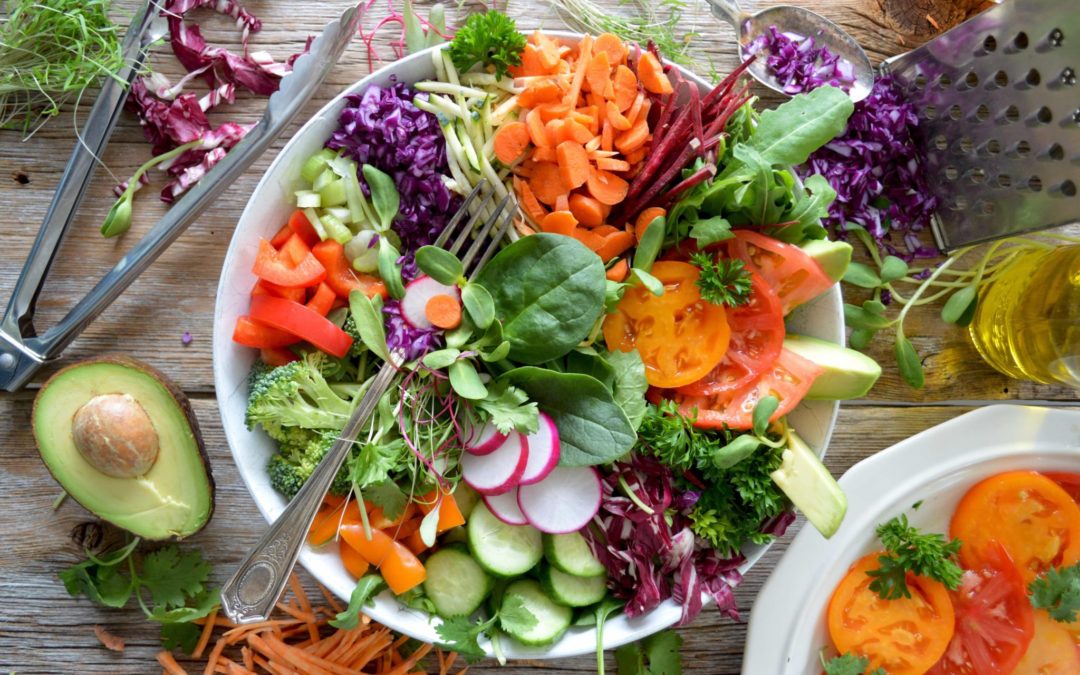Can Traditional Herbal Medicine Help With COVID-19?
According to the New York Times, to manage COVID-19, the Chinese government advised doctors to prescribe traditional medicines in addition to antiviral drugs. Herbs like Andrographis paniculata are used in Hospitals in China as overwhelming numbers of people flocking to their doors since the pneumonia-like COVID-19 (SARS-CoV- 2) outbreak. ref 1. Natural compounds found in some herbs may reduce the risk of catching a virus and make it difficult for the virus to live in your body. However, herbs do not totally eliminate the risk. ref 2, 3.
Germs Don’t Fly They Hitchhike
Virus transmission occurs via touch and droplets from person to person and sometimes animals to person as thought to be the origin of coronaviruses like COVID-19.
How To Prepared For COVID-19 Pandemic, Here’s My Preparation Strategy.
I don’t want to teach you about something you already know, here is a reminder on how to limit the contact with viruses. Also, you may like to read 12 Great Hygiene protocols to Help Stay Well that I wrote about a few months ago. Here is an update of these protocols:
- Firstly I would prevent contact with the virus. The first barrier to a virus is distance. Avoid contact with people who have flu-like symptoms. Practice social distancing when in public, during the flu season and this COVID-19 pandemic. The social distance recommendation is at least 1.5 – 2 metres or 5 – 6 ft away from other people to reduce the risk of catching a virus. This does not apply to the people you live with.
- The second barrier is our skin. Keep your skin clean, wash your body with soap and water at least once per day.
- The third barrier is our mucous membrane in our digestive tract. Mucous traps viruses other pathogens preventing them from entering the body
- Finally, we have the immune system that involves many cells like; white blood cells, T lymphocytes, natural killer (NK), etc.
- Wash your hands regularly with soap and water for a minimum of 20 seconds, particularly if you are in public spaces, and shake hands with other people. The coronavirus spreads by touching or shaking hands with a person that has the virus symptoms who are asymptomatic (people who test positive for the virus but have no symptoms).
- Put your used tissues in the rubbish bin to reduce the risk of contamination to others. Avoid travelling if you are sick or have a fever.
- Cover your nose and mouth when you sneeze or cough with a flexed elbow, or use a tissue, or wear a surgical mask when in public to stop the spread of germs. One sneeze can produce 100,000 droplets of mucus containing virus travelling 160 kilometres per hour.
- Keep surfaces clean, particularly door handles, handrails and eating surfaces. COVID-19 may be spread to people after touching contaminated surfaces. ref 4
- Don’t put your hands on or in your mouth unless you wash your hands with soap and water first. It only takes one viral spore from an infected surface to infect you.
- Don’t touch the handrail on stairs or escalators, in public places if you do, wash your hands with soap and water or use hand sanitiser.
- Keep a hand sanitiser with you. I keep some in the glove box of my car after I return to the car from the shops, we use antibacterial wipes to limit the spread of germs from the shopping centre.
- Change your pillowcase daily if you are sick. That way, you won’t continue to reinoculate yourself. Which leads us to the question, how long can coronavirus live on surfaces? The COVID-19 (coronavirus) can survive for several hours to 3 days, the variance depends on the surface. ref 4
- Don’t clean your fingernails with your teeth, most germs get caught underneath your nails, including viruses.
- Maintain nasal hygiene, viruses get trapped in the mucus that hardens in the nose.
- Clean your toothbrush. It can spread germs if not cleaned regularly.

Cold and Flu Rescue Book Home Remedies Guide. Prevention and management of Cold and Flu
Muscle-up Your Immune System, So It’s Ready For A Virus.
A healthy immune system needs an environment to supports its optimal function. You may have heard of these ideas before. I first wrote about this on 9 May 2019 12 Essentials to Muscle Up Your Immune System. Here is a summary of the post.
- Get street smart; make sure you get enough rest.
Sleep deprivation decreases white blood cells and natural killer cells that fight viral infections. ref 5. - Drink plenty of water.
2 litres per day for an adult, to prevent becoming dehydrated. - Don’t get a chill.
Reduced core temperature makes you more susceptible to a virus. - Eat warming foods.
Keeps your core temperature stable. Warming foods: beef, ginger, garlic, peppers, potato, sweet potato, squash, oats, kale, cabbage. Avoid cooling foods like salad, cheese, fruits, watermelon. - Avoid high sugar high carbohydrates foods.
Eat a balanced diet that is anti-inflammatory like the 40 30 30 Zone diet by Dr Barry Sears, where you consume 40% carbs, 30% proteins and 30% fats. ref 6 - Eat foods that support your immune system.
These foods are high in antioxidants and essentials vitamins and nutrients. Such as garlic, onion, ginger, turmeric, broccoli, carrots, spinach, and beetroot. - Reduce mucus-forming foods.
Like cow’s milk, cheese, yoghurt, sour cream, ice cream, and chocolate. As a naturopath with over 20 years of practice, it is clear to me that if a patient is suffering from congestion due to respiratory infection, when they abstain from mucus-forming foods, like diary the mucus level dramatically reduce. I do advocate and use the dairy in my prescription diets, but not while the patients have a respiratory infection. - Eat your veggies.
They contain an abundance of essential nutrients and antioxidants that will help support a healthy immune system. - Gargle salt water a few times per day.
It will help to loosen mucus and flush out bacteria and viruses in the throat. It may give some temporarily relieve for a sore throat. Dissolve 1/4 teaspoon of salt in 200 ml (8oz) of water, gargle for 10 seconds and then spit out, do not swallow. - Reduce stress.
Stress impedes immune function by reducing white blood cells, natural killers cells and T-cells production. These cells help to fight off infection. ref 7. - Exercise.
Moderate exercise has been shown to have a beneficial effect on the immune function and may protect against upper respiratory tract infections. ref 8. - Maintain a healthy weight
After 2009 H1N1 influenza A virus pandemic, those people who were significantly above their ideal weight at the time infection studies revealed that they had a higher risk of advised effects, increasing the severity of chronicity of influenza and experienced poor recovery from the disease. Overweight appears to cause a chronic state of inflammation that blunts the body’s antiviral response. ref 8.1. The bottom line is if you are overweight you have a higher risk of complicates, the best course of action would be to start a weight loss regime before you become sick.

Model of Coronavirus (COVID-19)
Seven Powerful Antiviral Herbs
- Andrographis (Andrographis paniculata). Studies show that Andrographis limits the spread of the virus by inhibiting the viral replication processes. ref 9. In another study, Andrographis significantly decreases the symptoms of the common cold (is a type of coronavirus) and shortened sick leave time. ref 10. And yet again in another randomised placebo-controlled double-blind study, after 3 months of taking Andrographis, there was a significant reduction in colds when compared to the placebo group. ref 11.
- Echinacea Angustifolia. Clinical trials have shown echinacea extracts to have the ability to shorten the duration and severity of colds. ref 12.
Symptoms of the common cold are linked to a strain of the human coronavirus (HCoV-229E). ref 13.
Echinacea is seen to be a modulator. That means it regulates your immune system to either building immune cells up or down depending on the body’s requirements. - Holy basil (Ocimum tenuiflorum). In a clinical trial in 2018 using the bird flu virus (H9N2), Holy basil showed a significant decrease in the ability of the virus to replicate itself. ref 14.
Research also has revealed that holy basil has antiviral activity against many pathogens that cause human infection. ref 15. - Shiitake (Lentinula edodes). Shiitake mushroom interferes with the early stages of viral replication in both poliovirus and herpesvirus. ref 16.
- Reishi (Ganoderma lucidum). Ganoderma has been used as a medicinal mushroom for over 2000. It inhibits viral replication by interfering with early stages of the infection. The study noted that this action did not affect normal cells. ref 17.
- Coriolus Versicolor (Trametes versicolor). Coriolus is a potent activator of natural killer cells which in turn stimulate white blood cells to defend us against virus infections. ref 18. 19.
- Cordyceps (Ophiocordyceps sinensis) Cordyceps initiate natural killer cells and T-cell to respond against pathogens. Specialist T-cells are used to clear the infection by killing cells that are infected by viruses. ref 20. 21.
If You Are Quarantined at Home for COVID-19
If you are quarantined at home and have limited resources to manage respiratory symptoms. In that case, you may find value in my ebook “The Home Remedies for Colds and Flu Rescue Book” practical suggestions to manage mild viral symptoms. Recommendations using everyday ingredients found in your pantry or grocery store. My family and I have used these remedies for years to minimise the chance of a full-blown respiratory infection from cold and flu viruses.
Should you be unlikely to come into contact with COVID-19 here is what I would do.
Rather than doing nothing, consult with your doctor. The doctors have access to the tests to identify viruses. No viruses should be taken lightly. Once I have received the doctor’s advice – I would follow it and incorporate, add in, a naturopathic perspective to give myself the best possible outcome.
The suggestions in this blog are general in nature and are for educational purpose only. The recommendations do not take into account your specific needs. Before you make changes to your routine or embark on any herbs or nutritional supplements, it is wise to check with your health care professional.
If there are any aspects of your diet you would like to discuss or clarify, please feel free to contact me through this website. Ultimately, my goal is to provide you with the knowledge to decide what diet best supports your health needs.
In health and wisdom
Brendon

Written by:
Brendon Groves
Clinical Naturopathic Practitioner
Founder of “Groves Naturopathics” and “The Groves Lifestyle Diet”
Adv. Dip. H. Sc. Nat, Dip. H. Sc. H.M., Dip. H. Sc. Nut.
Advance Diploma of Naturopathy, Diploma of Nutrition, Diploma of Herbal Medicine.
Special interests in: Weight loss, digestive issues, anxiety and mood disorders, immune support.
References
- New York Times; Briefing Wuhan coronavirus, Jan. 27, 2020. Kobe Bryant and John Bolton. https://www.nytimes.com/2020/01/27/briefing/wuhan-coronavirus-kobe-bryant-john-bolton.html
- Antiviral Natural Products and Herbal Medicines. 2014 Jan-Mar; 4(1): 24–35. Liang-Tzung Lin, Wen-Chan Hsu, and Chun-Ching Lin. https://www.ncbi.nlm.nih.gov/pmc/articles/PMC4032839/
- Direct Detection of Triterpenoid Saponins in Medicinal Plants. 2008; 5(1): 56–60. PG Kareru, J M Keriko, A N Gachanja, and G M Kenji. https://www.ncbi.nlm.nih.gov/pmc/articles/PMC2816600/
- New coronavirus stable for hours on surfaces? March 17, 2020. NIS (National Institutes of Health). https://www.nih.gov/news-events/news-releases/new-coronavirus-stable-hours-surfaces
- Human immune system during sleep. 2017 Dec 20. Nayyab Asif, Razia Iqbal, and Chaudhry Fahad Nazir. https://www.ncbi.nlm.nih.gov/pmc/articles/PMC5768894/
- Anti-Inflammatory Nutrition as a Pharmacological Approach to Treat Obesity. 2010 Sep 30. Barry Sears, and Camillo Ricordi. https://www.ncbi.nlm.nih.gov/pmc/articles/PMC2952901/
- Effects of Stress on the Immune Response to Theiler’s Virus – Implications for Virus-Induced Autoimmunity. 2010 Feb; 17(3): 169–172. C. Jane Welsh,a,b,* Andrew J. Steelman,a Wentao Mi,a Colin R. Young,a Dana D. Dean,a Ralph Storts,b Thomas H. Welsh, Jr.,c and Mary W. Meagherd. https://www.ncbi.nlm.nih.gov/pmc/articles/PMC2857642/
- The effects of physical exercise on the immune system. 2003 Jul 12;147(28):1347-51. Jeurissen A1, Bossuyt X, Ceuppens JL, Hespel P. https://www.ncbi.nlm.nih.gov/pubmed/12892009
- Anti-dengue activity of Andrographis paniculata extracts and quantification of dengue viral inhibition by SYBR green reverse transcription-polymerase chain reaction. 2018 Apr-Jun;39(2):87-91. Ramalingam S, Karupannan S, Padmanaban P, Vijayan S, Sheriff K, Palani G, Krishnasamy K. https://www.ncbi.nlm.nih.gov/pubmed/30783363
- Controlled clinical study of standardized Andrographis paniculata extract in common cold – a pilot trial. 1997 Feb;3(4):315-8. Melchior J1, Palm S, Wikman G. https://www.ncbi.nlm.nih.gov/pubmed/23195187
- Prevention of common colds with Andrographis paniculata dried extract. A Pilot double-blind trial. 1997 Jun;4(2):101-4. Cáceres DD1, Hancke JL, Burgos RA, Wikman GK. https://www.ncbi.nlm.nih.gov/pubmed/23195395
- Immune system effects of echinacea, ginseng, and astragalus: a review. 2003 Sep;2 (3):247-67. Block KI1, Mead MN. https://www.ncbi.nlm.nih.gov/pubmed/15035888
- A Rare Case of Human Coronavirus 229E Associated with Acute Respiratory Distress Syndrome in a Healthy Adult. 2018; 2018: 6796839. Foula Vassilara, Aikaterini Spyridaki, George Pothitos, Athanasia Deliveliotou, and Antonios Papadopoulos . https://www.ncbi.nlm.nih.gov/pmc/articles/PMC5925015/
- Evaluation of antiviral activity of Ocimum sanctum and Acacia arabica leaves extracts against H9N2 virus using embryonated chicken egg model. 2018 Jun 5;18(1):174. Ghoke SS1,2, Sood R3, Kumar N1, Pateriya AK1, Bhatia S1, Mishra A1, Dixit R1, Singh VK1, Desai DN1, Kulkarni DD1, Dimri U4, Singh VP1. https://www.ncbi.nlm.nih.gov/pubmed/29866088
- Tulsi – Ocimum sanctum: A herb for all reasons. 2014 Oct-Dec; 5(4): 251–259. Marc Maurice Cohen. https://www.ncbi.nlm.nih.gov/pmc/articles/PMC4296439/
- Polysaccharide and extracts from Lentinula edodes: structural features and antiviral activity. 012 Feb 15. Vinicius Pires Rincão, Kristie Aimi Yamamoto, Nágila Maria Pontes Silva Ricardo, Sandra Aguiar Soares, Luzia Doretto Paccola Meirelles, Carlos Nozawa, and Rosa Elisa Carvalho Linhares. https://www.ncbi.nlm.nih.gov/pmc/articles/PMC3292946/
- Ganoderma lucidum (Lingzhi or Reishi). 2011. Sissi Wachtel-Galor, John Yuen, John A. Buswell, and Iris F. F. Benzie. https://www.ncbi.nlm.nih.gov/books/NBK92757/
- Viral Infection of Human Natural Killer Cells. 2019 Mar; 11(3): 243. Elisabeth A. van Erp, Mirjam R. van Kampen, Puck B. van Kasteren, and Jelle de Wit. https://www.ncbi.nlm.nih.gov/pmc/articles/PMC6466310/
- Immunomodulatory Properties of Coriolus versicolor: The Role of Polysaccharopeptide. 2017; 8: 1087. Mohammad H. Saleh, Iran Rashedi, and Armand Keating. https://www.ncbi.nlm.nih.gov/pmc/articles/PMC5592279/
- T Cell Responses to Viral Infections – Opportunities for Peptide Vaccination. 2014; 5: 171. Sietske Rosendahl Huber, Josine van Beek, Jørgen de Jonge, Willem Luytjes and Debbie van Baarle. https://www.ncbi.nlm.nih.gov/pmc/articles/PMC3997009/
- Anti-influenza effect of Cordyceps militaris through immunomodulation in a DBA/2 mouse model. 2014 Aug; 52 (8):696-701. Lee HH1, Park H, Sung GH, Lee K, Lee T, Lee I, Park MS, Jung YW, Shin YS, Kang H, Cho H. https://www.ncbi.nlm.nih.gov/pubmed/25037880


